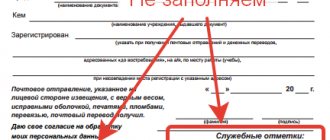The person to whom you should turn in the event of a violation of the current legislation or the rights of a citizen is the district police officer. At its core, a district police officer is a police officer whose responsibilities include maintaining law and order in a specific area of the populated area assigned to him. From a legal point of view, this law enforcement officer must protect the interests of injured citizens.
To perform its functions, the state vests it with certain powers. However, local police officers do not always fulfill their duty in good faith. A manifestation of violations on the part of a police officer is abuse of official position or failure to perform in general the functions assigned to him. This state of affairs serves as the basis for filing a complaint with a higher authority in order to resolve the issue or even pay for moral or material damage.
Powers of the local police officer
The full list of powers of the local police officer can be found in the order of the Ministry of Internal Affairs on the organization of the activities of authorized persons. Basic rights of district police officers:
- Checking documents of citizens who are suspected of an offense.
- Intrusion into an apartment, private house or other premises without permission, if a crime has been committed there or if there are people in need of help inside.
- Delivery of drunk citizens to the duty station or first aid station.
- Seizure of counterfeit documents and prohibited items.
- Temporary seizure of a vehicle and phone if there is a need to urgently transport the victim to the hospital or pursue an attacker.
- Removal of a drunk citizen from driving a vehicle.
Therefore, before you look for where to complain about the local police officer, make sure that his actions were in fact unlawful.
To understand in more detail what police inaction is, you can pay attention to some example situations:
- The police officer refused to accept the citizen's statement on any high-profile issue.
- During an inspection of a certain case, an employee made mistakes and ignored some details in order to achieve a different course of action. This can happen if the responding party bribed the police officer in order to replay the case and distort the facts.
- The policeman fabricated the case and distorted the facts of a specific crime.
- The employee delays the consideration of the case: does not interview witnesses, does not collect valuable evidence.
- The employee contributed to the closure of the case without detailed proceedings.
In addition to inaction, a Russian can complain against a law enforcement officer in the following cases:
- detention without legal grounds;
- offensive behavior and slander;
- use of physical force against civilians;
- lack of a warrant during a search of a residential premises;
- seizure of property without legal grounds;
- distorted drafting of the indictment;
- overestimation of the severity of the crime committed by a Russian;
- attempts to prevent a citizen from finding a lawyer.
If violations are discovered, you should not delay and file a complaint immediately. The more time we pass, the more likely it is that the policeman will be able to escape punishment.
Reasons
The work of a police officer must comply with certain standards in compliance with regulations and order. Therefore, your complaint may relate to any violation of these standards.
The most common cases are given in the following list:
- Insults against citizens;
- Threats against citizens;
- Refusal to provide information about yourself - first and last name, rank, unit (remember that when contacting you on official matters, the policeman is obliged to show you his identification - and make sure that you have examined it!)
- Demanding your documents without sufficiently compelling reasons that were explained to you before making this demand (for example, a thief who you resemble is wanted - your documents can be demanded only by telling you the reason for the check);
- Forceful influence on you by a police officer - the use of physical force, causing injury or harm (criminal offense);
- Extortion of illegal “donations” to the police – often occurs with traffic police officers;
- Illegal detention without specifying reasons, presenting evidence, or bringing charges against you.
These are just some of the grounds that guarantee your complaint will be accepted and considered by the police. Any of these offenses can be considered as an official crime by a law enforcement officer, and, therefore, lead to his administrative or criminal liability (in the case of beatings, for example).
Violations can be minor (police rudeness, for example) or quite serious (violence, physical or sexual). In these cases, you need to contact different authorities.
Submission procedure
Today, a citizen can send a complaint online or during an independent visit to the desired structure.
To apply via the Internet, you will need to go to the website of the Ministry of Internal Affairs, find the section for filing complaints, leave an application with attached files and send it for consideration. The citizen will learn about the status of the case in notifications sent to his email.
If a Russian submits a complaint in person, he will need a little more time to stand in line or wait for a meeting with his superiors. When filing a complaint, a special stamp is placed on the application and its copy, after which it is processed. The citizen must take care of a copy of the application in advance. The second copy must be in his hands.
The answer can also be obtained in person from the prosecutor's office. If the applicant is not satisfied with the response to the complaint, he can go to court for further proceedings.
We invite you to familiarize yourself with: Sample statement of claim to the court for the return of funds under the contract
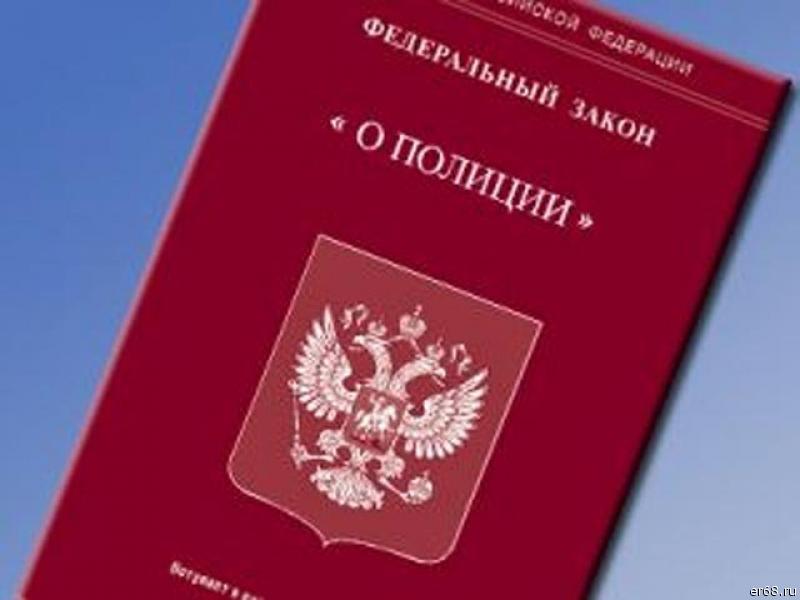
But a citizen needs to take into account that each case is individual, so it may take much longer to consider some cases. For example, in case of gross violations by a police officer, he will need to collect all the necessary evidence and physical evidence. And this may take several months.
Since the situations in each individual case are different and have a number of nuances, there can be many reasons for a complaint against a local police officer:
- Refusal to consider an application regarding issues of offenses;
- Inaction – a police officer’s passive attitude to work, lack of response after 10 days from the date of filing the application, failure to conduct checks and take action;
- Receiving a response with a formal reply, but no real solution;
- Rude, boorish, inappropriate behavior of a police officer towards the applicant.
The answer to the question of what to do if your local police officer is inactive or commits illegal actions is the same - file a formal complaint.
Descriptive part
The complaint can begin with a request to conduct an inspection regarding a specific district police officer. Next, it is necessary to explain the essence of the events that give the right to believe that the official violated the applicant’s rights. Then it is necessary to describe why, in the applicant’s opinion, the district police officer was inactive. For example, he did not interview the seller or pawnshop employee, or examine the documents provided by the applicant. Perhaps the district police officer gave an incorrect assessment of the offender’s actions or made the wrong conclusion about the absence of corpus delicti.
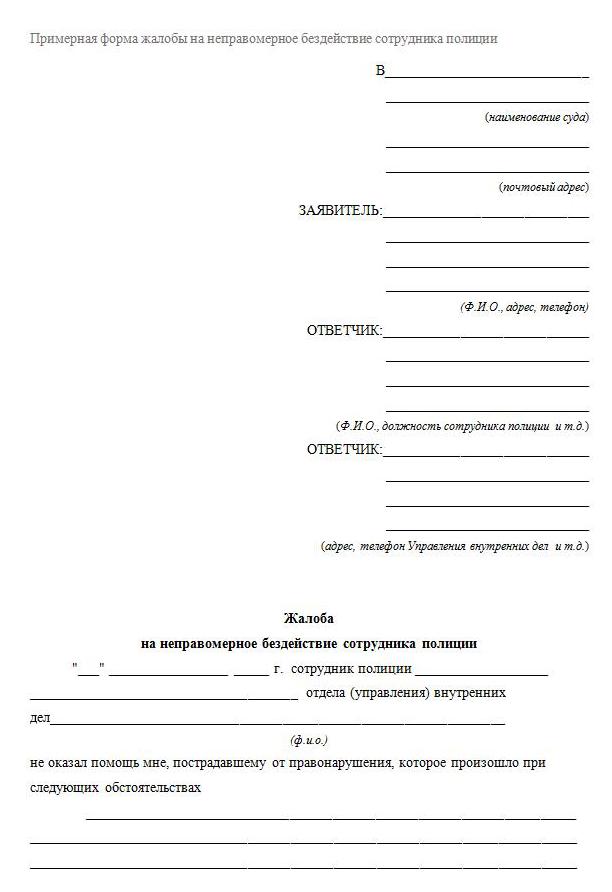
Sample
Remember that the complaint must be drafted correctly. The higher up the hierarchy of organs you climb, the more formal it should be. It must not contain false information, or use street slang, jargon or obscenities. It is also not worth threatening a police officer or law enforcement agency - this will give you a reason to harm you legally.
The complaint consists of several parts:
- Address – where and from where it is being submitted (don’t forget about your contacts so that you can receive an answer);
- The problem is what happened, what made you write a complaint (as specifically as possible, indicating the full name and position of the offending police officer);
- Demand - what do you want to happen next with the police officer or your problem;
- Conclusion – list of documents, signature, evidence, date.
Sample complaint against the police.doc
How and where can I file a complaint?
When the application is completed, it is necessary to take it to the police department so that the employees can record the application and begin proceedings on it.
The complaint is sent to the following structures:
- The police department where the unscrupulous officer works, or any other department located near the residence of the affected citizen.
- Prosecutor's office: primary, regional, highest level.
- Court.
Before deciding where to apply, it is better to schedule a consultation with a lawyer. It will help you make a choice and save your personal time. The fact is that a statement of inaction is submitted to those bodies that can take appropriate measures in a certain situation.
There are several options for where to complain about a local police officer. First of all, you need to contact the immediate supervisor of the employee with whom you have complaints. If this does not give the desired result, the next step is a complaint to the prosecutor's office or court.
| Oral complaint | Written statement | Electronic appeal |
| Call the hotline of the territorial department of the Department of Internal Affairs or the prosecutor's office. | Delivery in person at the territorial department or sending by registered mail with a list of attachments and return notification of receipt. | Submitting an online complaint through the official website of the Ministry of Internal Affairs and the prosecutor's office. |
If there is a violation or inaction of the district police officer, then when considering where to complain, you have the right to file complaints with several higher authorities at once. If your issue can be resolved in one of them, the rest can simply be withdrawn.
We invite you to familiarize yourself with: Entry ban into the Russian Federation. How to find out exactly how to withdraw, decision statistics.
In any case, a complaint about the inaction of the district police officer or his unlawful actions must first be sent to the immediate supervisor of the employee at the territorial police department. This is the best way to resolve the issue out of court, but it is not always effective enough.
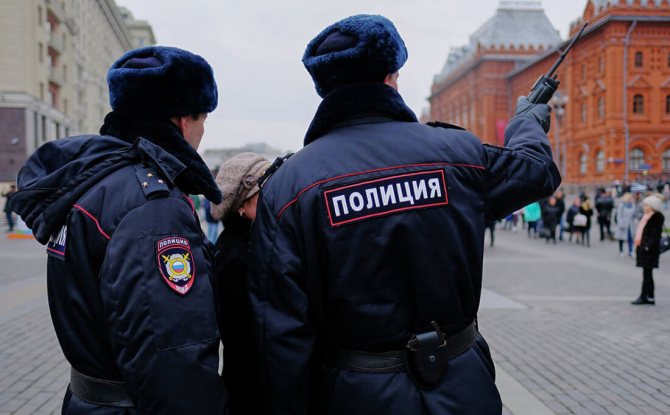
An application to higher management is an appeal to the city or district department of internal affairs. With a pre-written complaint, you need to come to the reception office or send an electronic request through the website of the Ministry of Internal Affairs of Russia.
To do this, in the “For Citizens” section, select “Reception of applications from citizens and organizations.”
A complaint to the court is relevant when you have real evidence that the local police officer caused you material, physical or moral damage. The claim is drawn up in the prescribed form and submitted to the court office.
The claim is filed on behalf of the injured person personally or by a legal representative, lawyer, or prosecutor. To file a claim, only three months are allotted from the date on which the violation became known. If the three-month period has expired, you will be denied acceptance and consideration of the claim on legal grounds, regardless of the circumstances. The deadline can only be restored in court and only on the condition that you had good reasons for missing it.
To the prosecutor's office
A complaint to the prosecutor's office about the inaction or unlawful actions of a local police officer is filed if an appeal to the employee's immediate superior and senior management has not yielded results. Upon receipt of a complaint, the prosecutor conducts an unscheduled inspection of the internal affairs department and the actions of the accused employee.
If inaction or the presence of illegal actions is confirmed, the culprit is brought to disciplinary, administrative and sometimes criminal liability. When the fact of a violation is not confirmed, you will in any case be sent an official letter with the results of the inspection and the decision made on your issue.
When considering where to turn if the territorial department of the prosecutor’s office is also inactive, there are two options: the Prosecutor General’s Office and the court.
Will anonymous requests be considered?
It is quite difficult to count on help and remain an anonymous applicant. Therefore, it is possible that such a complaint will be considered, but the applicant will definitely not know about the decision made. Senior management will definitely react, especially if it is a matter of corruption or a clear violation of official duties, but no one will be able to influence a specific situation.
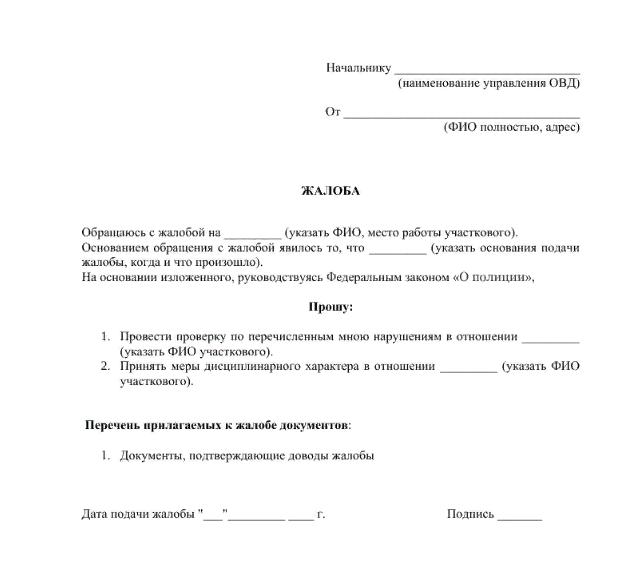
Responsibility of police officers for inaction

If the circumstances stated in the complaint are confirmed, the violator will face administrative, disciplinary or criminal liability. The execution of the punishment is monitored by the head of the police department or the prosecutor. It all depends on where you applied.
Criminal liability occurs only by court decision, for example, if there is extortion of a bribe or deliberate concealment of evidence important for the investigation.
Please note that the complainant is also liable if the allegations are knowingly false. Punishment in such cases ranges from an administrative fine to the opening of a criminal case.
Dear readers!
Our articles talk about typical ways to resolve legal issues, but each case is unique. If you want to find out how to solve your particular problem, please contact the online consultant form.
It's fast and free! Or call us by phone (24/7):
If you want to find out how to solve your particular problem, call us by phone. It's fast and free!
High demands are placed on law enforcement officers.
All police officers undertake:
- know the laws of your country and observe them correctly;
- fulfill your duties in accordance with work regulations, and not use your official position for selfish and personal purposes;
- carry out orders coming from superiors;
- when performing their work, do not violate the rights and freedom of citizens of the Russian Federation;
- regularly improve your skills in order to perform complex and responsible tasks;
- keep state secrets and not disclose information that should not be known to persons not related to the police;
- comply with all restrictions that apply to government employees;
- notify your superiors about recorded cases of corruption, refuse bribes and not set monetary tariffs for your work;
- provide information about your income and family financial situation.
All authorized persons, regardless of position, undertake to provide first aid to those in need who find themselves in a dangerous situation.
According to Russian law, all law enforcement officers are responsible for their work and for ignoring it. Therefore, when violations are detected, they, like ordinary citizens, are responsible for their negligence.
We suggest you read: Transferring a loan to another bank
A police officer may be subject to administrative, disciplinary and even criminal liability.
Legislative framework
All representatives of law enforcement agencies must be guided not only by the Constitution of the country, but also by Law 3-FZ, which quite clearly states their duties and rights. Police officers, including local police officers, are required to:
- comply with all requirements of current legislation;
- follow your job description;
- respect the rights and interests of all citizens and legal entities;
- provide first aid if necessary;
- take all possible measures to prevent an offense or crime;
- not to disclose confidential information that was obtained in the course of official duties, and so on.
In addition to this law, the activities of district police officers are regulated by Order of the Ministry of Internal Affairs of the Russian Federation No. 1166. This regulatory act spells out the duties of a district police officer. So, he must:
- ensure the safety of citizens in the serviced territory;
- receive information from citizens regarding offenses and planned crimes, take measures to prevent them;
- know where the so-called hot spots are;
- carry out court decisions (within their competence);
- check reports of planned and committed offenses, and so on.
Each district police officer is assigned a specific microdistrict, where he is obliged to carry out his main function - to protect the rights and interests of the residents of this locality.

Prosecutor's office
Employees of the prosecutor's office monitor the implementation of procedural disciplines by police officers. Most often, it is at this level of proceedings that the case begins to actively gain momentum, and the unscrupulous employee is finally called in for questioning.
If a Russian is faced with a deliberate and gross violation of rights and inaction on the part of an authorized person, then he can immediately send a complaint to the prosecutor’s office. If the prosecutor’s office reveals a fact of inaction, the police officer undertakes to quickly solve the citizen’s problem, as well as restore the lost funds that he spent on the proceedings.
When you can do without a complaint
Police misconduct is not always intentional. If a Russian discovered violations on the part of an employee of the authorities, notified him about this and then corrected his mistakes, there is no need to contact higher authorities and not bring the situation to a conflict.
Example: during an interview, the investigator brings in the testimony of witnesses and lets them read what they have written. Witnesses find some inconsistencies and point them out, the investigator quickly corrects the comments.
The inaction of the police is a serious violation of the state, which can result in serious physical or moral harm for Russian citizens. All law enforcement officers, regardless of position, undertake to help those who contact them who are in conditions of potential danger. If a police officer does his job dishonestly, he may face serious punishment for this.
Common mistakes on a given topic
Mistake #1. If the actions of a local police officer are of a corrupt nature, the victim can file a complaint exclusively with the Office for Organizing the Activities of District Police Commissioners and Juvenile Affairs Units. In such circumstances, a citizen must contact the prosecutor's office.
Mistake #2. Submission of an application to the prosecutor's office must only be open, indicating the personal data of the applicant. In the event of corrupt actions on the part of a local police officer, the applicant has the right to submit an anonymous appeal without providing personal information.
Who should I complain to first?
First of all, of course, you must first write a complaint addressed to the head of the given internal affairs body in which the police officer works, if by his inaction he does not contribute in any way to the development of the current situation.
This application can be sent by mail, can be brought to the reception and left with the secretary. It is better to write the application in two copies and keep one for yourself. Also, such a statement can be published on the website of the Department of Internal Affairs or ATC.
In addition, you can call the hotline or the boss’s reception and state the essence of the complaint. At the moment, all telephone calls to the police are recorded, so any call will not go unanswered. You can even call number 02.
You can appeal against the inaction of a police officer by contacting the Russian Ministry of Internal Affairs directly. The complaint should be sent there by registered or certified mail. The answer will come in a few weeks with a conclusion on the appeal. You can also contact the police's own security department. But it also happens that the police refuse to help.
Can they not consider the application?
A complaint against a district police officer for inaction may be returned to the applicant if the essence of the requirement is not clear from its text. They will not consider an application that contains obscene language or is written in illegible handwriting. They will also return the application if the issue has already been resolved, that is, the answer has been given and this “topic” is closed.
In cases of a return due to illegible handwriting or because the essence of the request is unclear, this can be quite easily corrected and you can resend the complaint.
Where to complain next
Appealing against the inaction of a police officer is more effective if you contact the prosecutor's office. This is best done in writing, and you can also write to the procurator’s website on the Internet. You should describe the situation in any form and indicate all available data. The prosecutor's office is more interested in such complaints and will respond fairly quickly.
If the prosecutor's office does not help, then the last resort remains - the court. It should also include a complaint about the inaction of a police officer in writing. You should keep one copy for yourself. There the complaint must be recorded and a stamp must be placed on the second copy. However, this is done in other organs as well.
It is best to appeal the actions of the police immediately, without postponing the case, this way the process will be more effective.










